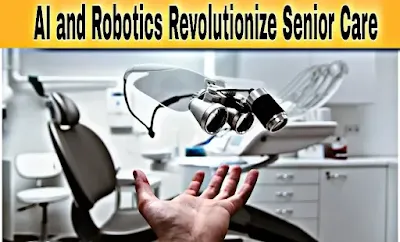Leaders in the aging-services sector discussed how generative artificial intelligence and robotics can enhance their work now and in the future.
Generative AI refers to a form of artificial intelligence capable of producing fresh content, including text, images, or music. It has attracted the attention of many healthcare executives, who see its potential to transform the industry. For example, eClinicalWorks, a cloud-based electronic health records system, integrated ChatGPT, a generative AI model, with its EHR and practice management solutions.
However, according to a 2023 Bain survey, only 6 percent of healthcare leaders have a clear generative AI strategy, even though 75 percent of them believe it can reshape the industry.
The aging-services sector is also exploring the possibilities of generative AI and other automated technologies, such as robotics. Senior care organization leaders gathered at the LeadingAge 2023 Annual Meeting and Expo in Chicago to discuss how these technologies can support their workforce and improve their care quality.
How Can Generative AI Benefit Aging Services?
Joe Velderman, vice president of innovation at Cypress Living, a senior living community in Fort Myers, Fla., urged his peers to think about how they can use generative AI responsibly and effectively. He said that people are already using AI in their daily lives, such as YouTube's video recommendations and Gmail's smart compose.At Cypress Living, Velderman said that they use AI in their helpdesk software, which has improved the efficiency of their IT department. An AI chatbot is being experimented with in Microsoft Teams to provide decision support for clinicians.
It's crucial that we get this right," he emphasized, highlighting the current chance to strategize the future use of artificial intelligence.
David Lindeman, director of the Center for Technology and Aging at the University of California, Berkeley, said that generative AI is not something to be feared, but to be embraced with a critical eye. He said that the next two to three years will be crucial for creating ethical and secure guidelines for AI tools, especially regarding bias and data quality. Rama Chellappa, a Bloomberg Distinguished Professor at the Johns Hopkins Institute for Assured Autonomy, also emphasized the importance of protecting health information.
Lindeman also said that generative AI will attract the next generation of employees, who will be more familiar with it. He said that generative AI can help senior care organizations in two ways: by automating administrative tasks, such as report writing, so that staff can focus on better care management; and by personalizing care to improve resident engagement.
Velderman also said that there are three types of businesses: those that are AI-native and lead with AI; those that are AI-emerging and will be transformed by AI once they adopt it; and those that are obsolete.
He hoped that the attendees would be in the AI-emerging group. "We need to adapt, we need to transform, or we're going to become obsolete," he said.
How Can Robotics Enhance Senior Care?
In another session, titled "Making Robotics a Reality, Not a Regret," the panelists wanted to move from what to how: from what robotics can do to how they can be used to achieve desired outcomes.Presbyterian Senior Living's vice president of technology, Bruce Shearer, said that the organization started using robotics a few years ago. During the COVID-19 pandemic, they used robotics in their dining services.
Shearer said that organizations should think beyond the physical appearance of robots and understand how AI and robotics can work together.
RiverSpring Living's CIO, David Finkelstein, said that his organization began using robotics at the start of the pandemic. They did research, consulted with peers and tested some robotic solutions. They found that robotics helped with medication dosing and dispensing, physical therapy, telemedicine, entertainment and wayfinding.
Finkelstein advised other senior care organizations to choose solutions that match their organizational culture, and to learn from other organizations that are already using robotics.
Majd Alwan, chief strategy and growth officer at ThriveWell Tech, said that data integration is essential for robotic process automation (RPA). He said that interoperability is still a major challenge for RPA.
He also said that organizations should communicate clearly with their staff that automation, RPA and robotics are not meant to replace them, but to reduce their workload and let them focus on residents and higher-level tasks.
Also like this= free eye 👁️👁️ treatment
